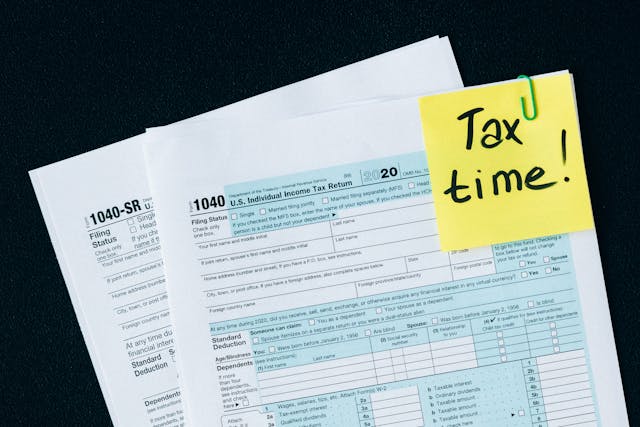Transitioning from Florida’s No-Income tax to New York can present significant financial changes for those making the move. Florida’s appeal lies in its lack of state income tax, allowing residents to retain more earnings. However, this benefit vanishes upon moving to New York, where state income taxes are among the highest in the country. New York’s tax structure includes multiple brackets, affecting various income levels differently, which can impact disposable income and overall financial planning. Understanding these differences is crucial for anyone relocating. Transitioning from Florida to New York requires careful financial preparation, as the higher tax burden in New York may lead to unexpected expenses. Strategic financial planning is essential to navigate this shift effectively. Proactively addressing these changes can help mitigate the impact on your finances, ensuring a smoother adjustment to New York’s tax environment.
Evaluating New York’s Income Tax Structure: What to Expect
In New York, income tax rates vary based on earnings, with multiple progressively increasing brackets. For those relocating from Florida, this shift can lead to a substantial change in take-home pay. New York’s tax rates start at a lower percentage for modest incomes but can rise significantly for higher earners. This difference means that individuals with higher income levels will feel the impact more acutely, potentially reducing their disposable income. The contrast between Florida’s no-tax policy and New York’s tiered system highlights the need for careful budgeting and financial adjustments. As income increases, so does the tax rate, making it crucial to understand where your earnings place you within New York’s brackets. Proper financial planning will help you navigate these changes, preparing you for the higher tax obligations of living in New York.
Preparing for Property Taxes in New York
New York’s property tax system differs significantly from Florida’s, where property taxes tend to be lower overall. Local governments determine property taxes in New York, so expect them to vary widely depending on the county and municipality. The rates are generally higher, which can be a considerable adjustment for those moving from Florida. While Florida offers relatively modest property tax rates, New York’s can be a substantial financial concern, especially in areas with higher property values. You should understand this difference clearly to budget efficiently and make financial plans. To manage the higher property taxes, consider strategies such as appealing your property’s assessed value if you believe it’s too high, exploring tax exemptions that might be available, and factoring these costs into your overall housing budget.
Estate Planning Adjustments When Moving to New York
The fact that Florida has no state estate tax often allows for more straightforward estate planning. On the other hand, New York estate tax, with specific thresholds and regulations, could significantly impact your estate. Revisit your estate planning documents to ensure they comply with local laws and tax requirements.
First, assess whether your current estate plan reflects New York’s tax implications. For example, the estate tax exemption threshold is lower than the federal exemption, meaning estates valued above this threshold could face substantial taxes. Failing to address these differences could result in unexpected tax liabilities for your heirs.
Consider working with a financial advisor or estate planning attorney to align your estate plan with laws. They can help you explore strategies to minimize estate taxes, such as creating trusts or making charitable contributions.
Tax Deductions and Credits Available in New York
Transitioning from Florida’s no-income tax to New York also requires navigating the tax deductions and credits. New York offers various tax benefits that can help reduce the impact of its higher taxes. For instance, residents may qualify for deductions related to property taxes, mortgage interest, and charitable contributions. Additionally, New York provides specific credits, such as the Earned Income Tax Credit (EITC) and credits for child and dependent care expenses, which can further reduce your tax liability.
These deductions and credits offset some of the financial burdens associated with the move. Yet, those unfamiliar with New York’s tax system often overlook them. To maximize your tax savings, explore all available options and claim every deduction and credit you are eligible for. Consulting a tax professional can help you identify these opportunities and maximize tax benefits, easing the financial transition to your new state.
Transitioning from Florida’s No-Income Tax to New York: Strategies to Minimize Tax Liabilities
To minimize tax liabilities in New York, you might need strategic planning and a proactive approach to financial management. Here are some effective strategies:
- Tax-Efficient Investments: Consider investing in tax-exempt municipal bonds, which can provide income free from state and federal taxes. Also, diversify your portfolio with investments that generate capital gains taxed at lower rates.
- Retirement Contributions: Maximize contributions to retirement accounts like 401(k)s or IRAs. These contributions are typically tax-deductible, which can lower your taxable income for the year.
- Charitable Donations: Donate to qualified charities. These contributions can be deducted from your taxable income, helping to reduce your tax burden while supporting causes you care about.
- Utilize Tax Credits: Explore New York-specific tax credits, such as the College Tuition Credit or the Solar Energy System Equipment Credit.
Implementing these strategies can significantly reduce your tax liabilities, allowing you to keep more of your income.
Planning for Additional Costs of Living in New York
Living in New York comes with higher expenses than Florida, making it crucial to adjust your financial plans accordingly. Almost everything in New York costs more, from housing to groceries. This significant increase in living costs will likely impact your budgeting and financial goals. For instance, you may need to allocate more of your income to cover rent, utilities, and transportation.
At the same time, when planning your move from Florida to New York, hiring professional movers is a good idea to ensure a cost-effective and easy transfer to New York. Experienced movers offer several advantages that can reduce financial burdens from the outset. Firstly, they are skilled in safely packing and transporting belongings, which minimizes the risk of damage to your items—damage that could otherwise lead to unexpected replacement costs. Also, professional movers are adept at navigating the logistical challenges of a move to NYC, which can prevent costly delays. Their expertise in handling relocation specifics, from securing the right permits to knowing the quickest routes, ensures a smooth process that aligns with your budget and timeline. By investing in professional moving services, you safeguard your possessions and optimize your relocation budget, setting a positive tone for your new life in New York.
In addition, prioritize essential costs and look for areas where you can reduce non-essential spending. Another key point is to explore discounts, local deals, and budgeting apps that can help you manage daily expenses more effectively. Lastly, consider building an emergency fund to cushion unexpected costs expected in a high-cost environment like New York.
The Role of Professional Financial Advisors in Your Transition
Make sure to consult with a professional financial advisor when moving to New York, especially given the state’s complex tax system and higher cost of living. An advisor can provide personalized guidance, helping you navigate the intricacies of New York’s tax regulations. They can also help you adjust your financial plan to accommodate the increased living expenses in New York.
Working with a financial advisor offers the benefit of ongoing planning and review, which is necessary for maintaining economic stability in a new environment. Regular check-ins with your advisor can help you stay on track with your financial goals and adapt to any changes in your income or expenses. You will also be able to make informed decisions about investments and savings.
Conclusion
Transitioning from Florida’s no-income tax to New York involves significant financial changes that require careful planning. By understanding the differences in tax structures, adjusting your estate plan, and exploring available tax deductions and credits, you can better manage the impact of higher property taxes. Consulting with a professional financial advisor can also provide valuable guidance. It can help you navigate New York’s complexities and maintain monetary stability. Proper preparation and ongoing financial management will ease your transition from Florida’s no-income tax to New York. It ensures you are well-equipped to handle the challenges and opportunities of your move.
Related Blog Posts
Join Over 100,000 Students Enjoying Manfred School Now
Become Part of Manfred School to Further Your Career.








